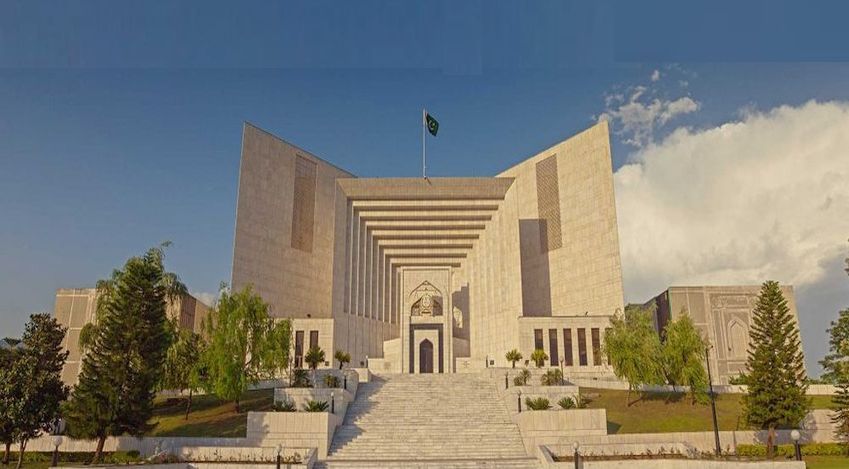Condonation of Delay is justified in cases involving significant Constitutional and Public Importance --- Supreme Court of Pakistan
Islamabad 08-10-2024: In a landmark decision, the Supreme Court of Pakistan condoned a three-day delay in filing a review petition by the Supreme Court Bar Association of Pakistan (SCBAP) in connection with Constitution Petition No. 2 of 2022. The five-member bench, headed by Chief Justice Qazi Faez Isa, delivered its judgment during a hearing on October 2, 2024. The petition had been delayed due to the unavailability of detailed reasons for the majority decision at the time of filing.
The Court addressed multiple legal and procedural objections raised during the hearing, ultimately allowing the delay to be condoned, given the unique circumstances surrounding the issuance of the majority decision.
In the order, the Court emphasized that a review petition must be filed only after the detailed reasons for the judgment have been issued. The bench highlighted that the issuance date of the majority judgment, which was received on October 14, 2022, could have prevented the filing delay had it been mentioned in the original decision. This view aligns with the precedent set in “Commissioner Inland Revenue v. Sui Northern Gas Pipeline Limited” (PLD 2023 Supreme Court 241), which mandates that every judgment must include the date it was written, signed, and pronounced.
The judgment reiterated that Article 188 of the Constitution of Pakistan grants the right to seek a review of any judgment or order of the Supreme Court. Order XXVI of the Supreme Court Rules, 1980, further governs the filing procedure for review petitions. The petitioner, SCBAP, argued that without the detailed reasons, it was impossible to provide a reasoned opinion, as required under the rules.
The Court acknowledged the constitutional right to review and accepted the explanation provided by SCBAP. The Court clarified that condonation of delay is justified in cases involving significant constitutional and public importance, especially where the petitioners, such as the SCBAP, have no personal interest in the matter.
During the proceedings, several objections were raised by Syed Ali Zafar, representing the Pakistan Tehreek-e-Insaf (PTI) and former Prime Minister Imran Khan. He argued against the condonation of delay and the composition of the Bench. Citing “Raja Amer Khan v. Federation of Pakistan” (PLJ 2024 Supreme Court 114), he questioned the validity of the Bench under the newly enacted Supreme Court (Practice and Procedure) Act, 2023.
The Court dismissed these objections, stating that the Act permits the reconstitution of the Bench based on the availability of judges. The Bench composition complied with Order XXVI, Rule 8 of the Supreme Court Rules, which mandates that review petitions be heard by the same Bench, as far as practicable.
Another significant issue raised during the hearing was the recording of the proceedings as required under Section 7B of the Supreme Court (Practice and Procedure) Act, 2023. The Court confirmed that recording instructions had been issued and were being adhered to in compliance with the statutory requirement.
Due to the extensive discussion on procedural objections and other legal matters, the hearing was adjourned on the request of the counsel representing PTI. The Court scheduled the next hearing for October 3, 2024, to proceed with the substantive issues raised in the review petition.
This decision reaffirms the Supreme Court's commitment to upholding procedural fairness and ensuring that review petitions are filed and heard in accordance with established legal principles, particularly in cases involving constitutional and public significance.








